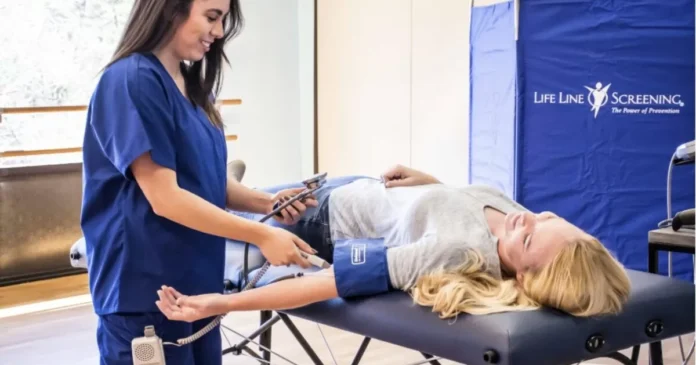Understanding that feeling well does not necessarily mean that you are healthy is a crucial realization that we all need to make. Often, we tend to associate good health with a lack of symptoms or physical discomfort. However, the truth is that there are many silent threats out there that can be silently damaging our bodies without us even realizing it. Among these threats, two of the most common and dangerous are stroke and heart disease.
Stroke and heart disease are two of the leading causes of death worldwide. According to the World Health Organization, an estimated 17.9 million people die each year from cardiovascular diseases, including heart attacks and strokes. And the scary part is that a large number of these deaths are preventable.
One of the main reasons why stroke and heart disease are so deadly is because they can often go undetected until it’s too late. Unlike other illnesses that may present clear and obvious symptoms, these two conditions can develop silently without any warning signs. This is why it’s essential to understand that feeling fine does not necessarily mean that you are indeed fine.
It’s easy to dismiss preventive screenings and regular check-ups when we feel healthy and have no noticeable symptoms. However, these screenings are crucial for our long-term health and well-being. They can help detect any underlying health issues and provide early interventions before they become life-threatening.
When it comes to stroke and heart disease, early detection is essential. With regular check-ups and preventive screenings, medical professionals can identify any potential risk factors, such as high blood pressure, high cholesterol, or diabetes, before they cause any significant damage. This way, you can take proactive measures to manage these risk factors and prevent any potential health complications.
Moreover, preventive screenings can also help identify any existing health issues that may be silently damaging your body. For example, a routine blood test can detect high levels of LDL cholesterol, which can clog your arteries and increase your risk of heart disease. By identifying these issues early on, you can take the necessary steps to manage them and improve your overall health.
Another crucial aspect of preventive screenings is that they can help you understand your body better. They can provide valuable insights into your overall health, including your blood pressure, cholesterol levels, and blood sugar levels. Armed with this information, you can make informed decisions about your lifestyle, such as making dietary changes, exercising more, or quitting smoking, to improve your health and reduce your risk of stroke and heart disease.
Preventive screenings also play a crucial role in safeguarding your future. By detecting any potential health issues early on, you can take proactive measures to prevent them from developing into more severe and life-threatening conditions. This can not only save you from a lot of pain and suffering but also save you a considerable amount of money on medical bills in the long run.
In addition to regular check-ups and screenings, there are also other measures you can take to reduce your risk of stroke and heart disease. These include maintaining a healthy diet, exercising regularly, managing stress, and avoiding harmful habits such as smoking and excessive alcohol consumption. By making these lifestyle changes, you can significantly improve your overall health and well-being.
It’s also crucial to spread awareness about the importance of preventive screenings for stroke and heart disease. Many people are not aware of the potential risks and may not prioritize their health until it’s too late. By educating ourselves and our loved ones about these silent threats and the importance of early detection, we can help prevent unnecessary deaths and improve the overall health of our communities.
In conclusion, feeling fine does not necessarily mean that you are healthy. It’s crucial to understand that our bodies can be silently suffering from various health issues without showing any obvious symptoms. Therefore, regular check-ups and preventive screenings are crucial for detecting and managing potential risk factors for stroke and heart disease. By taking these proactive measures, we can safeguard our future and live a healthier and happier life. Remember, prevention is always better than cure.


